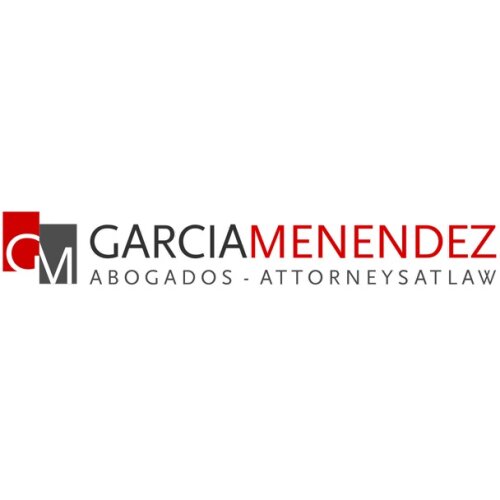Best Corporate & Commercial Lawyers in Buenos Aires
Share your needs with us, get contacted by law firms.
Free. Takes 2 min.
List of the best lawyers in Buenos Aires, Argentina
About Corporate & Commercial Law in Buenos Aires, Argentina
Corporate & Commercial law in Buenos Aires, Argentina covers the legal rules, regulations, and practices that govern business organizations, commercial transactions, and the day-to-day running of companies. Buenos Aires, as Argentina's capital and leading commercial hub, hosts numerous local and international businesses, making corporate and commercial legal services essential for startups, established companies, investors, and entrepreneurs. This field encompasses company formation, governance, mergers and acquisitions, contracts, labor relations, regulatory compliance, competition law, and dispute resolution.
Why You May Need a Lawyer
There are many situations where professional legal assistance is recommended or required when dealing with corporate and commercial matters in Buenos Aires. Some common scenarios include:
- Registering a new company or partnership and choosing the most suitable legal structure
- Drafting, reviewing, or negotiating commercial contracts and agreements
- Managing mergers, acquisitions, or joint ventures
- Resolving shareholder disputes or governance issues
- Ensuring regulatory compliance with local, provincial, and national laws
- Protecting intellectual property and brand assets
- Dealing with labor and employment law issues related to staff
- Addressing insolvency or restructuring needs
- Handling disputes, litigation, or arbitration between businesses
- Facilitating foreign investment and cross-border transactions
Given the complexity and evolving nature of Argentine corporate and commercial laws, having a knowledgeable lawyer helps safeguard your interests, minimize risks, and ensure successful business operations.
Local Laws Overview
Argentina's primary statute governing companies is the General Companies Law (Ley de Sociedades Comerciales, Law 19.550), which sets out the framework for various legal forms such as Sociedad Anónima (SA - Corporation) and Sociedad de Responsabilidad Limitada (SRL - Limited Liability Company). Buenos Aires businesses must also follow tax regulations, the Civil and Commercial Code (Código Civil y Comercial), and sector-specific rules issued by regulatory bodies.
Key aspects of local corporate and commercial laws include:
- Company Registration: Processes and requirements for forming different types of legal entities
- Shareholder Rights: Rules about corporate governance, meetings, voting, and management duties
- Contract Law: Principles of contract drafting and enforcement under the Argentine Civil and Commercial Code
- Labor Laws: Local and national laws regulating employment, dismissals, unions, and workplace safety
- Taxation: Obligations regarding VAT, income tax, gross income tax, and other fiscal matters
- Foreign Investment: Laws impacting the participation of foreign individuals or entities
- Consumer and Competition Law: Rules designed to protect consumers and ensure fair market practices
- Dispute Resolution: Processes for commercial arbitration, mediation, and court litigation
Due to the overlap between national and local regulations, and frequent changes in legislation, businesses in Buenos Aires must pay close attention to compliance and seek timely legal counsel whenever needed.
Frequently Asked Questions
What are the most common types of business entities in Buenos Aires?
The most frequently used legal structures are Sociedad Anónima (SA), ideal for larger companies or those seeking to raise capital, and Sociedad de Responsabilidad Limitada (SRL), suitable for small to medium businesses. Other forms like the Sociedad por Acciones Simplificada (SAS) offer streamlined processes for startups.
How long does it take to register a company in Buenos Aires?
Depending on the chosen structure and complexity of the business, company registration typically takes between two to six weeks, including name reservation, document preparation, and registry filings.
Are foreign investors allowed to set up companies in Argentina?
Yes, foreign individuals and entities can establish companies in Argentina. However, certain regulatory requirements and tax implications apply, and some industries may have restrictions.
What are the basic obligations for corporate governance?
Companies must hold annual shareholders' meetings, maintain proper accounting records, file annual balance sheets, comply with tax obligations, and ensure local representation on the board of directors for SAs.
Is it mandatory to have a registered office in Buenos Aires?
Yes, companies must have a registered address in Argentina and, if operating in Buenos Aires, an official domicile in the city for legal notices and correspondence.
What taxes do companies in Buenos Aires need to pay?
Common taxes include Income Tax (Impuesto a las Ganancias), Value Added Tax (IVA), Gross Income Tax (Ingresos Brutos), and social security contributions. Local and provincial taxes may also apply depending on activity.
How are commercial contracts enforced in Buenos Aires?
Commercial contracts are governed by the Civil and Commercial Code. If disputes arise, enforcement can occur through negotiation, mediation, arbitration, or court proceedings, depending on contractual terms.
What are the main labor law requirements for employers?
Employers must register employees, comply with minimum wage and benefit regulations, make social security contributions, and uphold employee rights relating to dismissals, severance, and workplace safety.
How can corporate disputes be resolved?
Disputes can be resolved through direct settlement, mediation, arbitration (often specified in contracts), or recourse to commercial courts in Buenos Aires. The chosen method should be stipulated in agreements.
Is intellectual property protection important in Argentina?
Yes, IP protection for trademarks, patents, and copyrights is essential for businesses. These rights should be registered with the National Institute of Industrial Property (INPI) to ensure legal protection.
Additional Resources
If you require more information on corporate and commercial matters in Buenos Aires, the following resources and bodies can be helpful:
- Inspección General de Justicia (IGJ) - Company registry and oversight entity in Buenos Aires
- Ministerio de Justicia y Derechos Humanos - National ministry overseeing justice matters
- Administración Federal de Ingresos Públicos (AFIP) - National tax authority
- Colegio Público de Abogados de la Capital Federal - Buenos Aires Bar Association
- Cámara Argentina de Comercio y Servicios - Argentine Chamber of Commerce and Services
- Instituto Nacional de la Propiedad Industrial (INPI) - National Institute for intellectual property registration
- Tribunales Comerciales - Commercial courts in Buenos Aires
These organizations provide further details on rules, procedures, and offer support to individuals and companies involved in corporate and commercial activities.
Next Steps
If you need legal assistance in corporate and commercial matters in Buenos Aires, consider these steps:
- Identify your legal needs by outlining your situation and goals
- Gather all relevant documents such as business plans, contracts, financial records, and prior correspondence
- Consult with a qualified local corporate & commercial lawyer, preferably one experienced in your industry
- Prepare questions and clarify your expectations during your initial legal consultation
- Review and understand any legal fees or terms of service before engaging a lawyer's services
- Follow your lawyer's advice for compliance, negotiation, or dispute resolution to ensure your business interests are protected
A professional legal advisor will guide you through local regulations, help you make informed decisions, and support your business activities in Buenos Aires efficiently and securely.
Lawzana helps you find the best lawyers and law firms in Buenos Aires through a curated and pre-screened list of qualified legal professionals. Our platform offers rankings and detailed profiles of attorneys and law firms, allowing you to compare based on practice areas, including Corporate & Commercial, experience, and client feedback.
Each profile includes a description of the firm's areas of practice, client reviews, team members and partners, year of establishment, spoken languages, office locations, contact information, social media presence, and any published articles or resources. Most firms on our platform speak English and are experienced in both local and international legal matters.
Get a quote from top-rated law firms in Buenos Aires, Argentina — quickly, securely, and without unnecessary hassle.
Disclaimer:
The information provided on this page is for general informational purposes only and does not constitute legal advice. While we strive to ensure the accuracy and relevance of the content, legal information may change over time, and interpretations of the law can vary. You should always consult with a qualified legal professional for advice specific to your situation.
We disclaim all liability for actions taken or not taken based on the content of this page. If you believe any information is incorrect or outdated, please contact us, and we will review and update it where appropriate.
Browse corporate & commercial law firms by service in Buenos Aires, Argentina
Buenos Aires, Argentina Attorneys in related practice areas.















